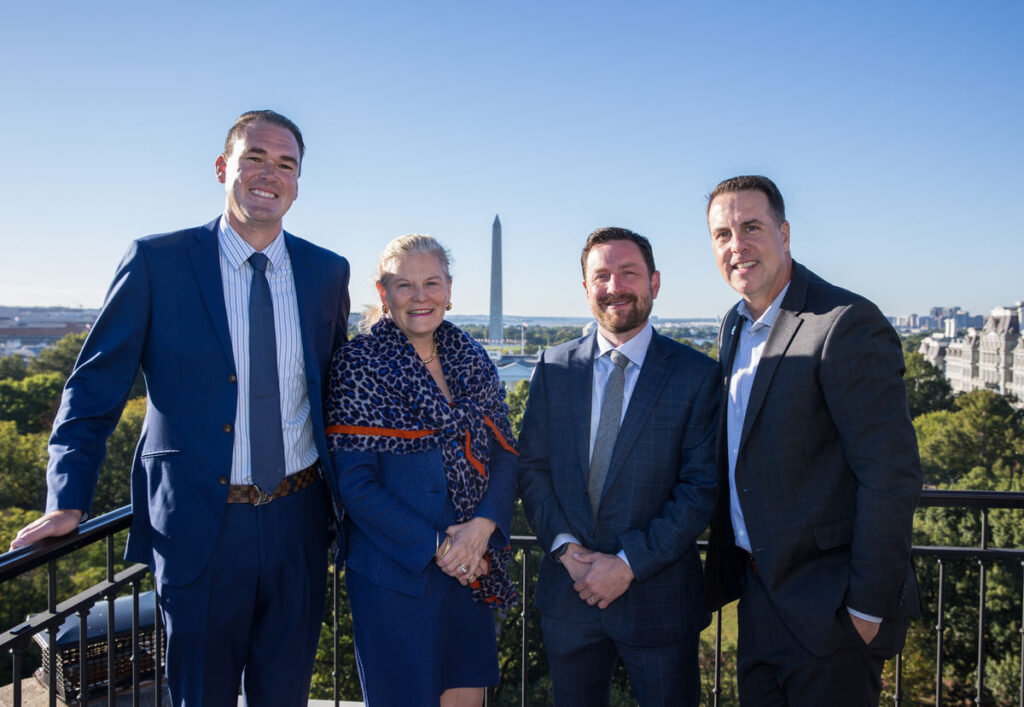
WHY IT RATES: The new forum is a key move for ASTA as it looks to grab the reigns in leading the shape of business travel in 2025 and beyond.—Patrick Clarke, TravelPulse Senior Editor
Following ASTA’s annual Legislative Day, nearly 90 senior executives and thought leaders gathered in Washington, DC for the inaugural ASTA Corporate Travel Executive Forum—a new invite-only gathering designed to bring together the most influential voices in corporate travel management. The event marked a pivotal moment for the industry, offering a platform where Travel Management Companies (TMCs), suppliers and buyers could exchange ideas, challenge assumptions and explore the evolving business case for managed travel.
As the conversation unfolded, one message resonated across every session: business travel, and managed business travel in particular, isn’t a cost to be contained—it’s a catalyst for growth. Newly released data from ASTA and GBTA’s joint study, Quantifying the ROI of Business Travel, revealed that U.S. firms investing strategically in managed travel see measurable gains in company performance.
This new phase of research builds on findings released by GBTA in July, which showed that across the U.S. economy, an 8 percent increase in business travel investment could yield a 6 percent rise in company sales representing more than $2.4 trillion in new economic activity nationwide—a powerful indicator of travel’s outsized impact on business performance. Because travel spending typically represents only a small fraction of total company expenses, even a modest increase can generate disproportionately large gains in revenue. Earlier analysis also found that a one percent increase in travel spending corresponds to a 0.2 percent rise in company revenue, further reinforcing the direct link between investment in travel and business growth.
The latest phase goes deeper at the company level, analyzing more than 3,200 U.S.-based firms to reveal that organizations with even modest travel policy enforcement generate 17 to 30 percent higher revenue than those with none. The research also identified a “Goldilocks zone” of travel management, where policies are balanced rather than rigid, demonstrating that companies with flexible yet disciplined approaches achieve the strongest performance. Together, these findings illustrate that both investing wisely in travel and managing it strategically are key drivers of company growth and long-term success.
As Executive Vice President of ASTA Corporate Mark Meader reflected, “This event marks a pivotal step in elevating the voice of the corporate travel community within ASTA. By bringing data, dialogue and decision-makers together under one roof, we’re helping the industry understand not just the cost of travel, but its true strategic value. The conversations and connections made here will ripple across the years ahead.”
The Forum’s agenda featured a blend of interactive discussions, research presentations and peer-to-peer exchanges designed to challenge conventional thinking. The day opened with remarks from ASTA President and CEO Zane Kerby, followed by Meader’s delivery of key preliminary findings from ASTA and GBTA’s joint research study, Quantifying the ROI of Business Travel, with the full report for phase two to be released soon. Meader’s presentation revealed how companies that align travel policies with performance goals consistently outperform peers, demonstrating a clear, data-driven link between managed travel investment and revenue growth. He highlighted that firms with strategic travel management programs not only achieve higher profitability but also foster stronger client relationships and greater long-term resilience.
The Forum showcased an exceptional lineup of industry voices and thought leaders offering diverse perspectives on the forces shaping corporate travel’s future. Chuck Todd (of NBC Meet the Press fame) opened with a sharp analysis of the current political landscape and its implications for business travel policy, while Charlie Cook (The Cook Political Report Founder) provided an in-depth look at global mobility and geopolitical trends influencing travel demand. Kurt Ekert (Sabre President and CEO) explored the future of distribution, transparency and NDC adoption, emphasizing the importance of data-driven collaboration across the ecosystem. Paul Tilstone (temoji Founder) brought an on-the-ground perspective from the corporate travel marketplace, highlighting innovation, shifting client expectations and the evolving TMC value proposition. Jamie Pherous (CTM Founder) discussed achieving global growth through local precision, sharing how agile management and cultural intelligence are redefining travel operations worldwide. Rounding out the discussion, Jennifer Steinke (Moderna) alongside temoji’s Katie Virtue examined in a fireside chat how modern corporations are building tomorrow’s travel programs with flexibility, safety and sustainability at their core.
Participants echoed that enthusiasm in their feedback. Andrew Henry, Vice President of Corporate Development at Uniglobe Travel International, called the Forum “an excellent event bringing together the leaders in our industry.” He noted that it “provided valuable networking opportunities and a chance to hear from those who shape corporate travel both from within the industry and from government.” Henry added that “any agency serious about corporate travel should be a member of ASTA’s Corporate Advisory Council and should be attending this event.” Alex Eaton, CEO of World Travel Service, agreed, calling the Forum a “must-attend event” and noting that “ASTA has seized a leadership position in corporate travel management. If you’re a serious TMC, you need to be part of the Corporate Travel Executive Forum.”
As the evening reception at the iconic Washington National Cathedral concluded, the tone was one of momentum and optimism. Attendees departed with new insights, partnerships and validation that travel, when managed strategically and with effective policies, drives far more than meetings—it drives measurable growth. The day’s discussions made clear that the companies outperforming their peers aren’t those spending the least on travel, but those aligning travel investment with strategy, relationships and opportunity.
Building on this success, ASTA is already preparing for the 2026 Corporate Travel Executive Forum to be held in Denver next October, promising deeper insights and collaboration with a multitude of players in the corporate travel space and an even broader platform for industry dialogue.
SOURCE: ASTA press release.
For the latest travel news, updates and deals, subscribe to the daily TravelPulse newsletter.

